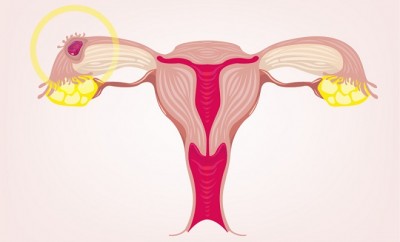How long after ovulation does implantation occur? The answer revealed..
How long after ovulation does implantation occur? Many women have been asking this question for a couple of years without getting that perfect answer that will enable them to test their pregnancy accurately without relying on estimations.
When does ovulation occur and how long after ovulation does implantation occur?
The process starts by hypothalamus a part of the brain that detects presence of low estrogen levels in the body at the start of menstrual cycle by stimulating the release of hormone to the ovaries of a woman. This will always indicate the absence of mature eggs located at the ovaries. When this does occurs, it will send signals to pituitary gland by releasing FSH commonly known as follicle stimulating hormone. How is this hormone helpful? The hormone will tell the small sacs or follicles, which contain immature eggs located at the ovaries to begin preparing a mature egg for ovulation.
This will take some hours before the egg matures. Once the egg matures, the hormone will tell the hypothalamus to begin the process of stimulating ovulation. What happens next? The hypothalamus tells pituitary gland still located in the brain to release luteinizing hormone also known as LH that prompts this mature unfertilized egg to begin leaving the ovary. This will enable it to start tripping down the oviduct or commonly known as fallopian tube. At this moment, the process of ovulation occurs.
Read also: Signs Of Implantation: What To Look Out For
Remember that we have several factors that affect the process of ovulation. These factors are illness, stress, or even the disruption of an individual’s normal routines. Can the above factors affect how long after ovulation does implantation occur? The answer is YES. They will either slow down or speed up the ovulation process depending on the physiological characteristics of the woman.
Read also: Implantation Bleeding – Top 5 Signs Indicating Early Pregnancy!
The journey of the ovaries from the time of bursting to the time that they land at the fallopian tube often take a duration of 24-36 hours and this varies from one woman to another among other related factors. Up to ovulation, it takes only 24-36 hours before a mature egg arrives in the fallopian tube.
When does conception occur?
A mature egg can only survive for about 24 hours in the oviduct or fallopian tube. If it is fertilized during the period, it will resume with the journey down from fallopian tube (oviduct) to the uterus. In any case, it is not fertilized, the egg will die thus absorbed by uterine lining before being expelled during next period within a period of about 18 to 24 hours. Never forget that a sperm can even survive up to 3-4days in the body of a female, and sometimes a sperm can be just waiting for unfertilized egg in fallopian tube prior to ovulation, and if a woman had an intercourse prior to ovulation, fertilization if likely to take place. In addition, intercourse that happens after ovulation, it will take only about 30 minutes to a maximum of 2 hours for sperm to move from a woman’s vagina to waiting egg.
Read also: What Does Implantation Bleeding Color Tell About Your Reproductive Health?
The latest research have shown that the duration of conception can also be affected by other factors like the nutrition, hereditary factors, age of the woman, hormonal activities in the body among other factors. Do these factors affect how long after ovulation does implantation occur? Most women who were asked said yes, but this is not scientifically proved. This means that it is true to a certain percentage thus never assume these factors. In conclusion, the conception process will take approximately 30 minutes to a maximum of 2 hours.
Where implantation does takes place and its effect on time from ovulation to implantation?
Once a sperm meets an egg and conception takes place, the resulting blastocyst will complete the journey in the uterus where it implants into uterine lining. No soon had the implantation occurs than the embryo starts producing a hormone called human chorionic gonadotropin commonly known as HGC. This is a key hormone during pregnancy. Whenever a person carries pregnancy test, it often tests the presence of HGC hormone. Depending on the day of fertilization, this process can take 6 to 12 days. However, research has shown that it often takes approximately 10 days in over 80% of most women.
Read also: Implantation Bleeding or Period? 5 Leading Signs of Implantation Spotting
Never forget that the physiological characteristics as well as the fertility rate of a woman can sometimes make the process of implantation takes a little bit longer. In addition, health status is also very important. This is the main reason why women need to keep healthy diets if they want increase the chances of pregnancy. At this stage, a woman should maintain a peaceful mind since stress is one factor that can really prolong the implantation process thus increasing the duration it takes from the time of ovulation to implantation.
Before the actual implantation takes place in the uterine, several processes have to take place in the uterus to make a woman ready for this coming fetus. The HGC will increase the levels of blood flow in the uterine thus enabling perfect implantation. During this time, if you want a more accurate result, is important to test for pregnancy since the uterine walls produce large amount of the HGC that is responsible for the preparation of the pregnancy.
Read also: Discover the Most Common Implantation Symptoms
In conclusion, many medical practitioners have discussed this question of how long after ovulation does implantation occur without agreeing on an exact duration. This is because of the unique characteristics of different women. With the above information, you can understand your individual physical characteristics from ovulation to implantation and be able to predict the amount of time it takes from the time of ovulation to the moment fetus implants itself on the uterine walls. However, if this process is too complicated for you, you can use the estimation of 6 to 12 days that many medical practitioners have unanimously agreed on as the time it takes from the ovulation to the implantation.













